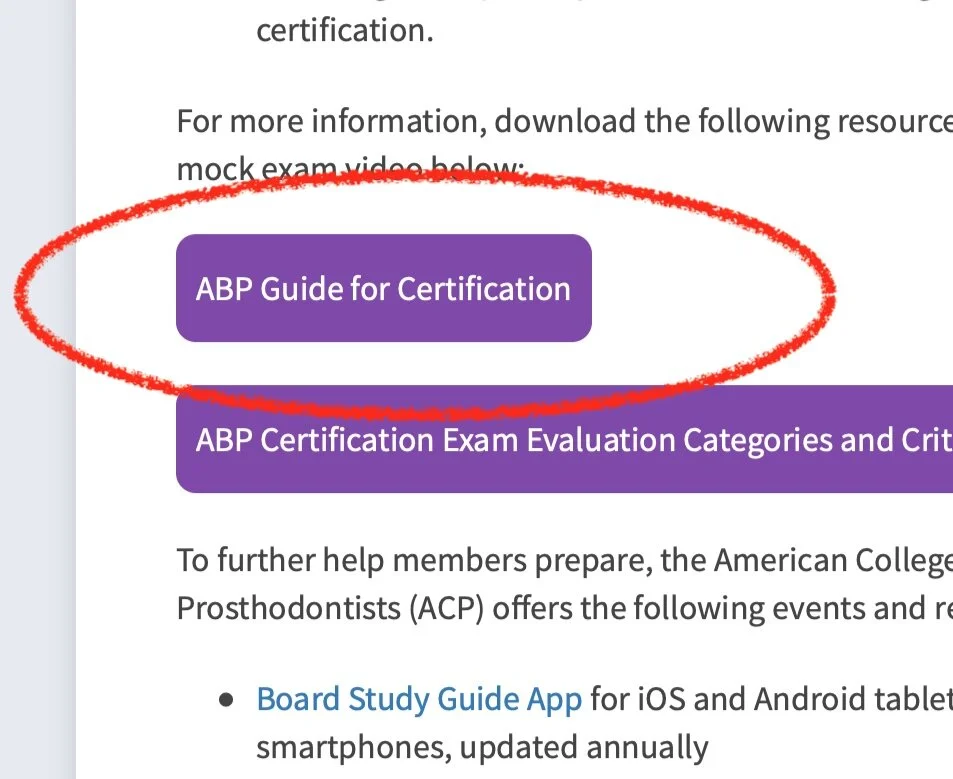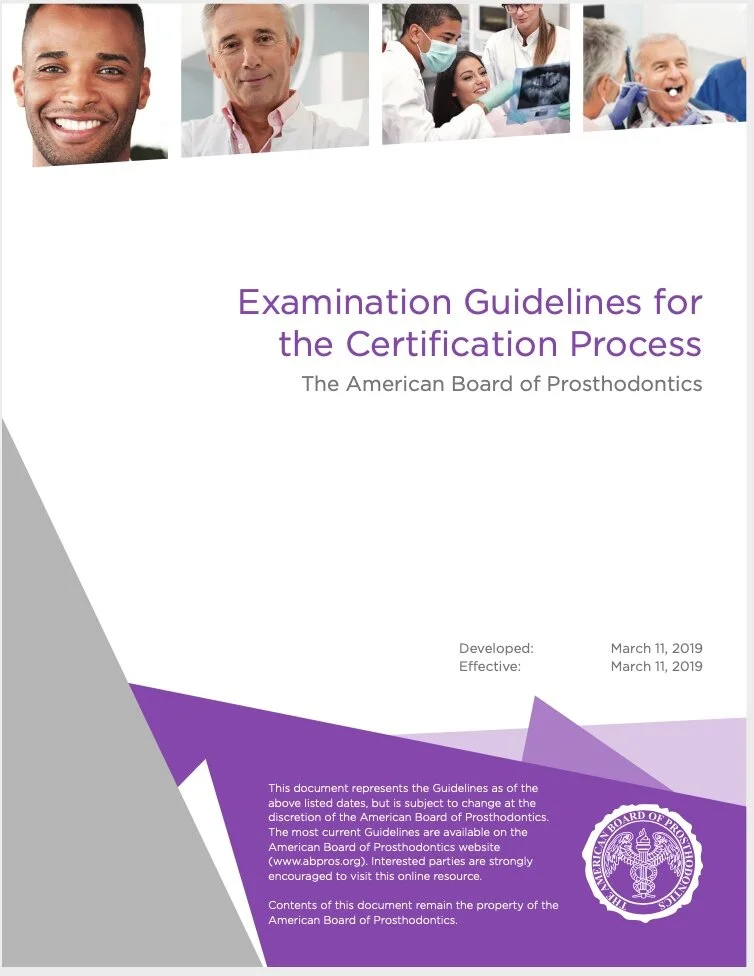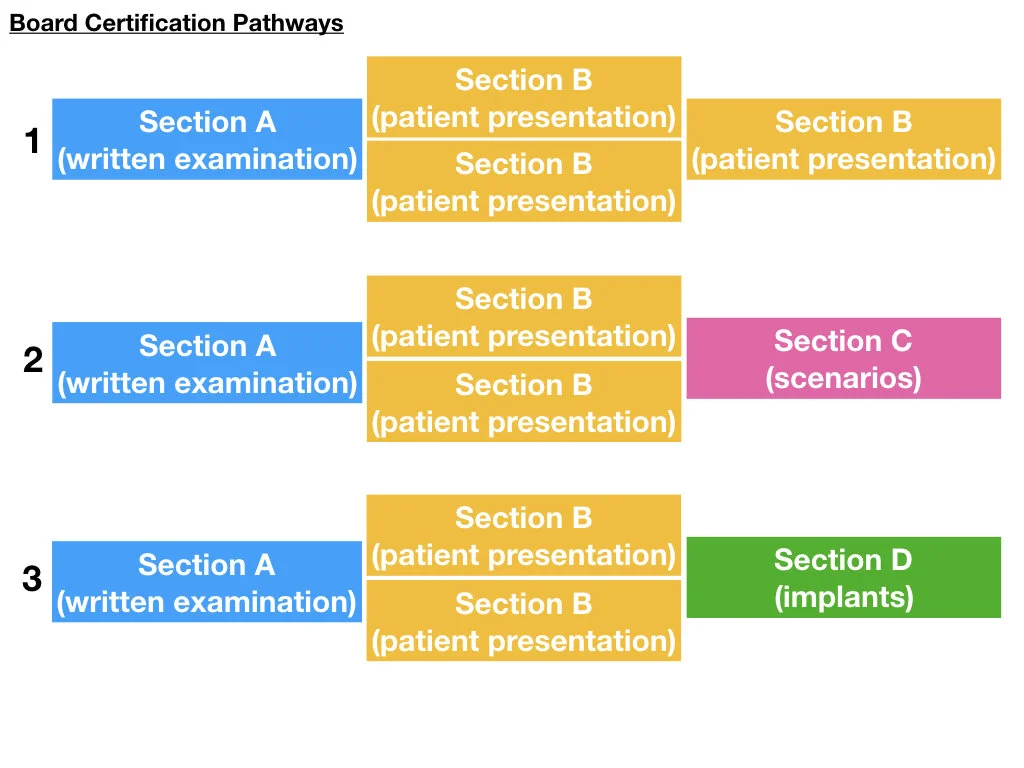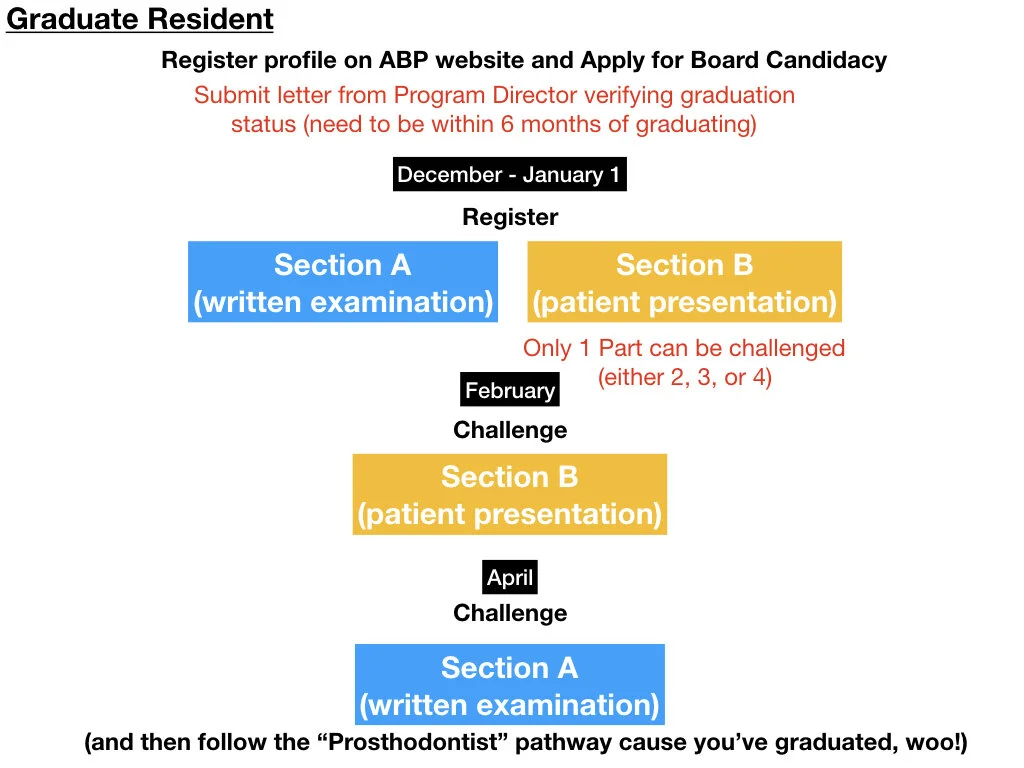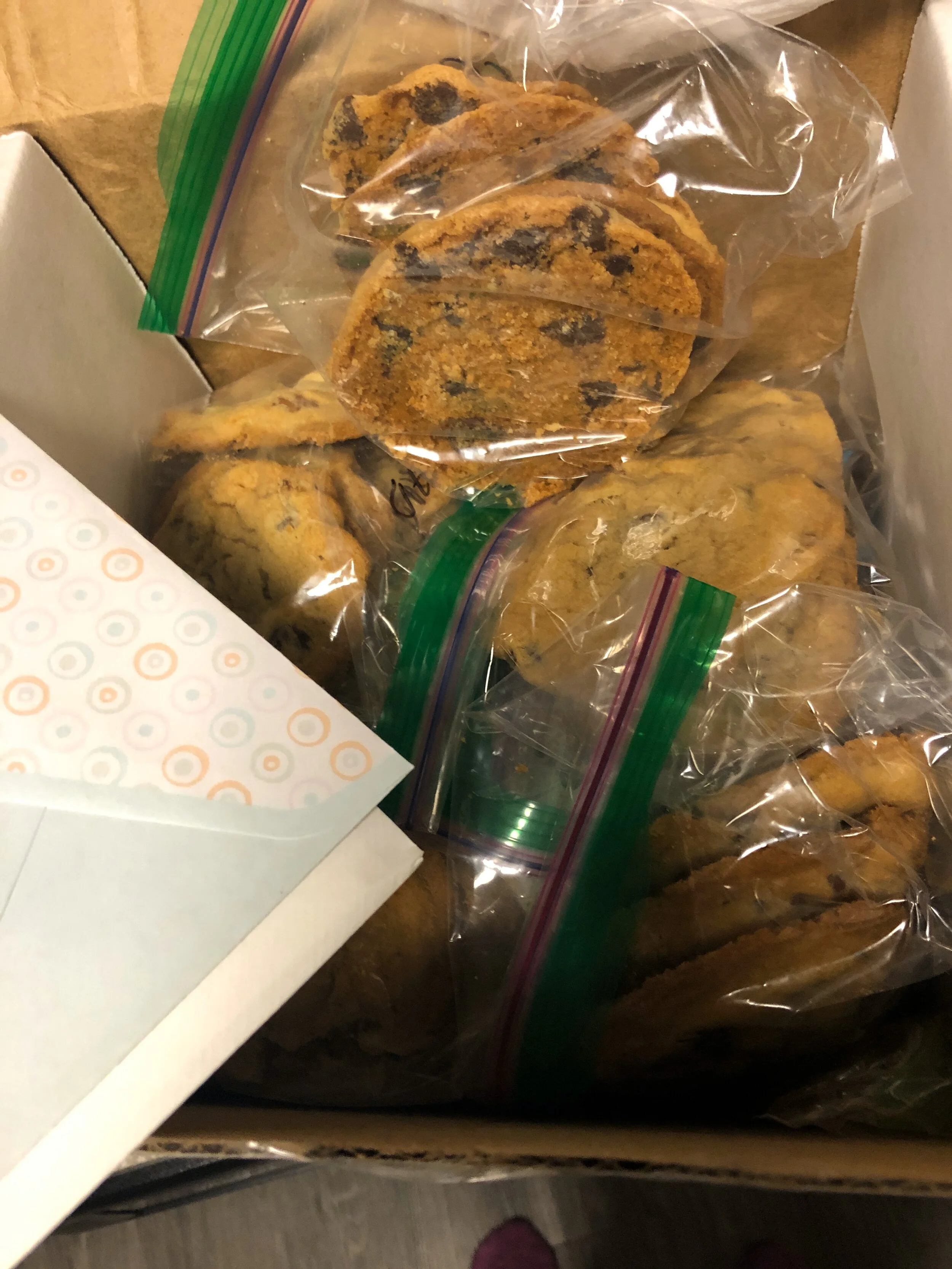Boards: Pre-boarding Preparations
I challenged the American Board of Prosthodontics Board Examination in February 2019. This is a little bit on my experience and thoughts.
(Disclaimer: This is not affiliated, sponsored, nor representative of the opinions, beliefs, and ideas of the American Board of Prosthodontics)
Based on the input I received from previous board challengers, prosthodontics mentors, and board examiners, I’ve found that the top reasons for failing the board examinations are:
The challenger did not follow instructions
The challenger did not review his/her cases with anyone prior to challenging the boards
The challenger got defensive while undergoing the oral examinations
All of these factors are very preventable, but at the same time, these errors are also very easy to commit.
The individuals who did disclose that they did not pass sections of the boards are all super intelligent - it made me realize that errors happen to those who seem invincible otherwise. And that’s why they would share what their experiences were like to not pass the board examinations - so that other challengers, like myself, could avoid the pitfalls.
So, let’s review:
The challenger did not follow instructions
Okay challenger(s). This is the source
American Board of Prosthodontics
Bookmark it, write it down, save it. This is your go-to-resource for the board examinations.
And this is the second book of “all things that need to be known” in the Prosthodontics Board Examinations
PRINT IT. READ IT. RE-READ IT.
This document will explain EVERYTHING you need to know for getting through board certification.
For the visual learner, here is a brief overview of how it works - Boards comprise of 4 sections - A, B, C, D.
EVERYONE must take and pass Part A - the written examination. And then the challengers must complete AT LEAST 2 patient-based oral examinations. A THIRD patient-based oral examination can be pursued, OR a scenarios-based, OR implant-based oral examinations can be challenged (and passed) to finish the board examination round-up.
The big picture - FIND YOUR APPROPRIATE PATHWAY.
Blue pill Red Pill? The Matrix
This is where it gets tricky - (i.e. READ THE MANUAL). Timing for registration, knowing when you’re eligible for certain examinations, and when the examinations are actually offered VARY. Plan accordingly.
Now this is only the beginning… You, challenger, will need to read, re-read, re-re-re-re-read the manual for further details on the actual oral examinations (to be continued… I’m 2 glasses of wine down so far, so need to save this topic for a future post).
The challenger did not review his/her cases with anyone prior to challenging the boards
Find your Team.
Your team should comprise of people who are not only experienced in boards, but can actually support, be (frankly) honest with you (but supportive), and be your reliable cheerleader when you feel super duper down (because it will happen!).
I owe a lot to my program director, faculty mentors, and colleagues who went through the board examinations experience themselves or have guided others through the process. These were the people who brought up issues that I was not aware of, who told me to double-tripe-quadruple check on aspects of my cases, and who consoled me when I got to the finish line, down-trodden and exhausted.
BUT, I owe a TON to others - my dental assistants (who put up with me and put my patients at ease while I was panicking while taking clinical photographs or bringing the patient in for the -nth time to double check a crown margin), my lovely dental hygienist (who not only made sure to assist with maintenance but also helped with procuring radiographs and communicating with my patients), my patient care coordinators (who made sure that my patients were informed of their appointments and attended appointments to help me complete their cases), and my friends/family outside of dentistry (for keeping me well-fed and giving me perspective that life does exist outside of board examinations).
So definitely have the team to review your cases. You need several sets of eyes and brains to help you, challenger, be successful.
But success of multi-faceted. Life is happening in the midst of all of this chaos. And you need team members who will not only remind you of the goodness of life, but those who will still love and support you in spite of the temporary insanity you will/are experiencing in the board challenging process.
The challenger got defensive while undergoing the oral examinations
In all seriousness, I only know of one person who thoroughly enjoyed challenging the boards and this individual is (I’m not being sarcastic) maybe/ probably an undiagnosed genius (with photographic memory). But this individual is also one of the nicest, and humblest, people I know.
This is tough. You are, or about to embark, a long, enduring chapter of your life. You are going to invest in a lot of time, effort, and finances into this. And you deserve to be proud of what you’ve achieved once you go into the room to face the board examiners.
However, let’s be real. You, and the rest of us, are lifelong learners. Twenty-six years (and over 6 months as an actual/official faculty member) is nowhere enough experience to declare myself the best and all-knowing prosthodontist ever (I’m sooooooo far, far, far, faaaaaaaaaaar - keep going farther, from that). As I mentioned before, this examination is meant to make you re-assess everything and break down everything you know so that you can truly understand why you do the things you do (in prosthodontic care) and what that means to you.
Getting defensive is a natural mechanism to preserve your dignity, integrity, and self-respect. It is not easy, especially after all the work you’re about to put in/have put in, to face criticism. And sometimes (and unfortunately), that criticism will not come out as respectful as it ought to be.
But take faith in that being able to withstand criticism and then actually understand the perspective from which that criticism is coming from, will only prove moreso that you have learned and gained from this board examination process. Humility is not a surrender of your reputation, but it is knowing that you have the ability to assess, evaluate, and accept that there is a difference of opinion that can be helpful to you.
Challenger (and those who are reading and may be a potential team member for the challenger), take a deep breath. These are tips to carry with you in your pocket as you progress. I, and my colleagues who have gone through boards and have stumbled (me included), hope that these tidbits will help make the rest of your journey a little less bumpy. Remember, you got this.
This post’s lesson: It doesn’t hurt having a team members who bake and send you homemade cookies and treats (both edible and non-edible) - Thank you AY & LK!
